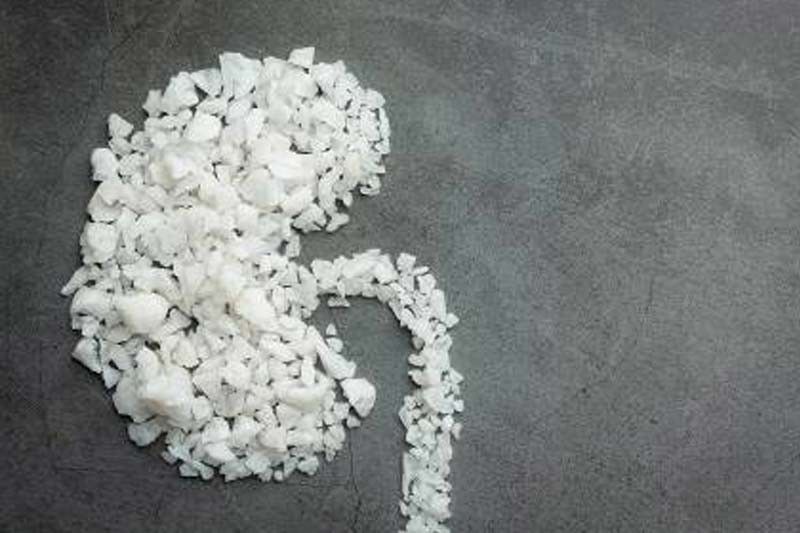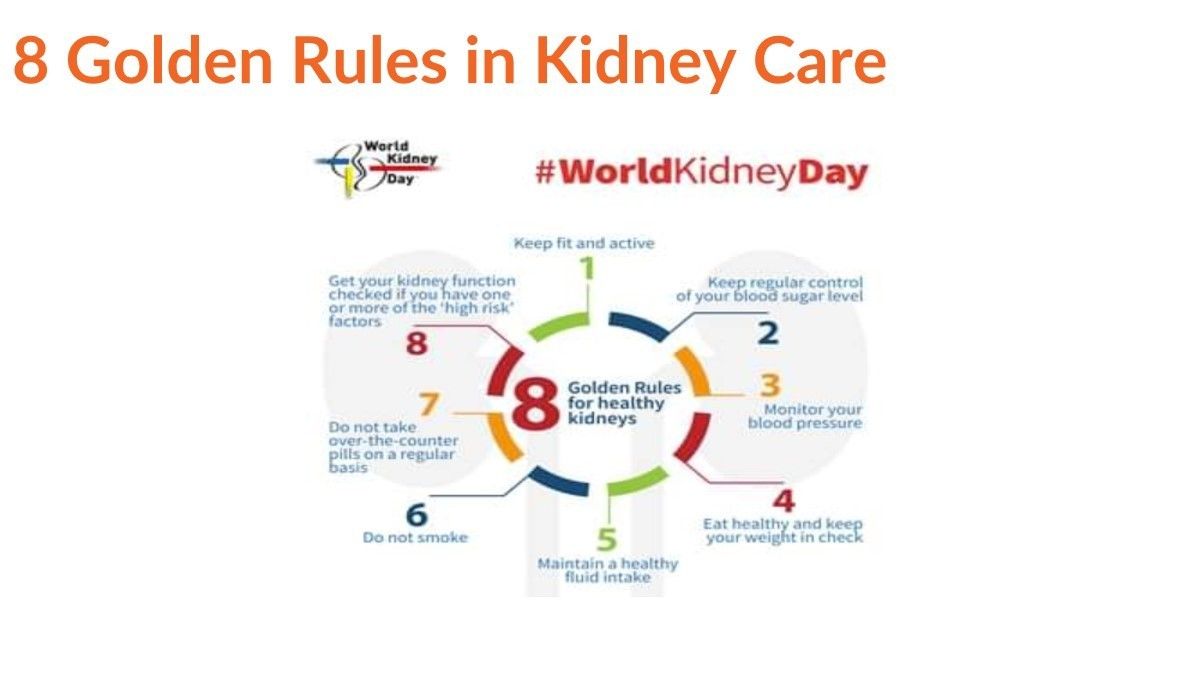How to keep your kidneys safe


We’ve all been in our homes more often than before since the pandemic hit. One of our routines that probably changed would be our eating habits. During the early stages of the lockdown, it was difficult for some household to visit the market or the grocery due to the fear of getting sick. Some relied on food deliveries and most of these meals are from fast food restaurants since they are more affordable and can feed an entire family. But since these meals are frequently fried, high in cholesterol, and have additives that we’re unaware of, it can categorically trigger a looming illness that may affect our kidneys.
Kidney disease is the 10th cause of death in our country and it’s deemed a “silent killer,” because it has no symptoms until the critical stages of the sickness. According to an article from the University of the Philippines’ website for their webinar called Dialysis and COVID-19: Challenges and Opportunities, one Filipino dies of kidney failure every hour, and that in 2020, there are close to 35,000 people who undergo dialysis and kidney treatment in the country.
Just like any comorbidity, people who have kidney disease and kidney transplant have a higher possibility of having severe COVID-19 symptoms.
In line with our advocacy of promoting kidney awareness as we celebrate World Kidney Month this March, we invited Nephrologist Dr. Frederick Verano on Pamilya Talk’s “Okay, Doc”.
Dr. Verano shared that because of the pandemic, some patients with kidney diseases have not been able to go to the hospital or dialysis centers the past two years. “Noong 2021, hindi natin dama yung dami ng tao na may sakit sa bato, pero sa mga last quarter ng 2021 at first quarter ng 2022, nararamdaman natin na napakarami ng pasyente ang mga bumabalik sa ospital at nagpapatingin sa kanilang mga doktor, Ito yung mga hindi nakapagfollow-up dahil sa pandemya. Marami po sa kanila ay nagkaroon na ng progression ang sakit sa bato o yung mga dating diabetic o hypertensive lang noon na ngayon ay rinerefer na ng mga attending nila dahil nakikitaan na ng mga sintomas ng problema sa bato.”
Kidneys 101
Our kidneys are very important organs in our body. They keep our blood clean and chemically balanced. This is probably the most crucial function of our kidneys. Protein is important to our body. But after being utilized, it produces waste products which should be excreted from the body. Our kidneys filter the blood, as well as the waste products which we release in our urine. Creatinine and urea are also waste products in our blood that’s being filtered by our kidneys.
Our kidneys also keep the volume of water in our body constant. This is the second most important job of our kidneys. It basically regulates the balance of fluid in our body by expelling extra water as urine and then retaining the right level of water that our body needs for us to live. Excess water in our body leads to bloating.
Kidneys also help regulate blood pressure. It produces hormones that help regulate salt and water in our body, which is vital in maintaining blood pressure. If the production of these hormones is disrupted, it can lead to high blood pressure. Another function of our kidneys is to stimulate the making of red blood cells. Kidneys also produce hormones that activate Vitamin D, which keeps our bones strong.
If our kidneys malfunction, all these important operations will stop and our body will slowly deteriorate. The damage done to our kidney can be caused by uncontrolled diabetes, hypertension, and different long-term conditions.

“Yung sakit sa bato wala talaga siyang sintomas sa ibang pasyente until that time na talagang nagiging worse siya. The patient may experience changes sa kanyang ihi. Sometimes nagiging cloudy or mapula kasi may dugo yung ihi nila. Sometimes may bula … Since yung kidneys yung nagcocontrol ng water balance sa katawan natin, kapag nawala na yung capacity ng kidneys natin na mag-ayos ng balanse na yun, namamanas yung pasyente natin kasi nagkakaroon ng water retention. Yung ibang pasyente minsan hindi na nila malabas yung mga dumi sa mga katawan nila, paggising pa lang sa umaga parang pagod na pagod na sila. Wala na silang energy,” Doc Verano describes a few manifestations of kidney illnesses.
People who usually get kidney disease are those who have it in their family (hereditary), or have a history of diabetes and / or hypertension.
“Get a urinalysis or a blood test to check your creatinine level at least once a year if you have a history of kidney disease in your family or if you have an illness that could cause kidney disease,” advised Doc Verano when asked what tests should a person get in order to check the status of his or her kidneys. As per healthline.com, people can also have these procedures done in order to check / test if your kidneys are functioning well: Glumerular Filtration Rate, Ultrasound, CT Scan, and Kidney Biopsy.
Common types of kidney diseases
Chronic Kidney Disease
CKD is commonly caused by hypertension and diabetes. It doesn’t improve easily. Having CKD will eventually stop your kidneys from functioning. People who suffer from this should undergo dialysis (medical procedure to filter the blood due to kidney failure), or worse, kidney transplant.
Polycystic Kidney Disease
This happens when there are many cysts in the kidneys, which can cause our kidney to stop functioning properly.
Urinary Tract Infection (UTI)
This happens when bacteria infect the urinary system. UTI is easily treated and seldom leads to severe health issues. But if left untreated, the infection can spread and can reach the kidneys, which can eventually cause kidney malfunction.
Kidney stones
One of the most common problems that can occur in our kidneys. They happen when minerals and other substances found in our blood form as crystals in the kidneys.
“Kidney stones are the accumulation of minerals sa katawan, most especially kung mataas ang uric acid at calcium level mo. Yung mga mineral na ito, sa kidneys ito ine-excrete. Itong pag-form ng kidney stones na ito ay hindi overnight. Para itong diamond, panahon ang hinintay para lumaki at tumigas."
"Usually, nagbibigay tayo ng gamot na pangpatunaw. Sambong yung binibigay natin para sa kidney stone bilang may lokal na pag-aaral na nakakatulong ito sa pagtunaw ng kidney stone. Para maiwasan natin ang pagbuo ng kidney stone kailangan natin uminom ng maraming tubig,” explained Dr. Verano. He also added that, “walang formal studies na nakakapagpatunay na nakakatunaw ng kidney stone ang lemon o olive oil.”

Kidney illness prevention
- Keep fit and stay active.
- Keep regular control of your blood sugar level especially those who are diabetics. The more that diabetics control their sugar level, the less stress it gives the kidneys, which results to less progression to having kidney disease.
- Monitor your blood pressure especially if your family has a history of hypertension. If you're diabetic, your target blood pressure should be below 120/80.
Eat healthily and keep your weight in check. Eat more fruits and vegetables. Avoid using extra food additives and try to eat less salty, fried, and fatty dishes.
- Healthy fluid intake: at least eight glasses a day.
- Don't smoke. Smoking releases chemicals that kills kidney cells.
- Get your kidney function checked regularly if you have one or more of kidney disease risk factors.
We don’t know until when will COVID-19 end. With hospitals and health care centers prioritizing the battle against this virus, it leaves less urgency to treat other common diseases like kidney ailments. So, let’s do our part to stay as healthy as we can to not end up dealing with repercussions of being attached on a machine to help us feel better.
--
Watch Pamilya Talk on Facebook, YouTube, and Kumu (@JingCastaneda – 4:00-5:00pm Monday & Wednesday). You can also follow my social media accounts: Instagram, Facebook, YouTube, Twitter, and Kumu. Please share your stories or suggest topics at editorial@jingcastaneda.ph.



















